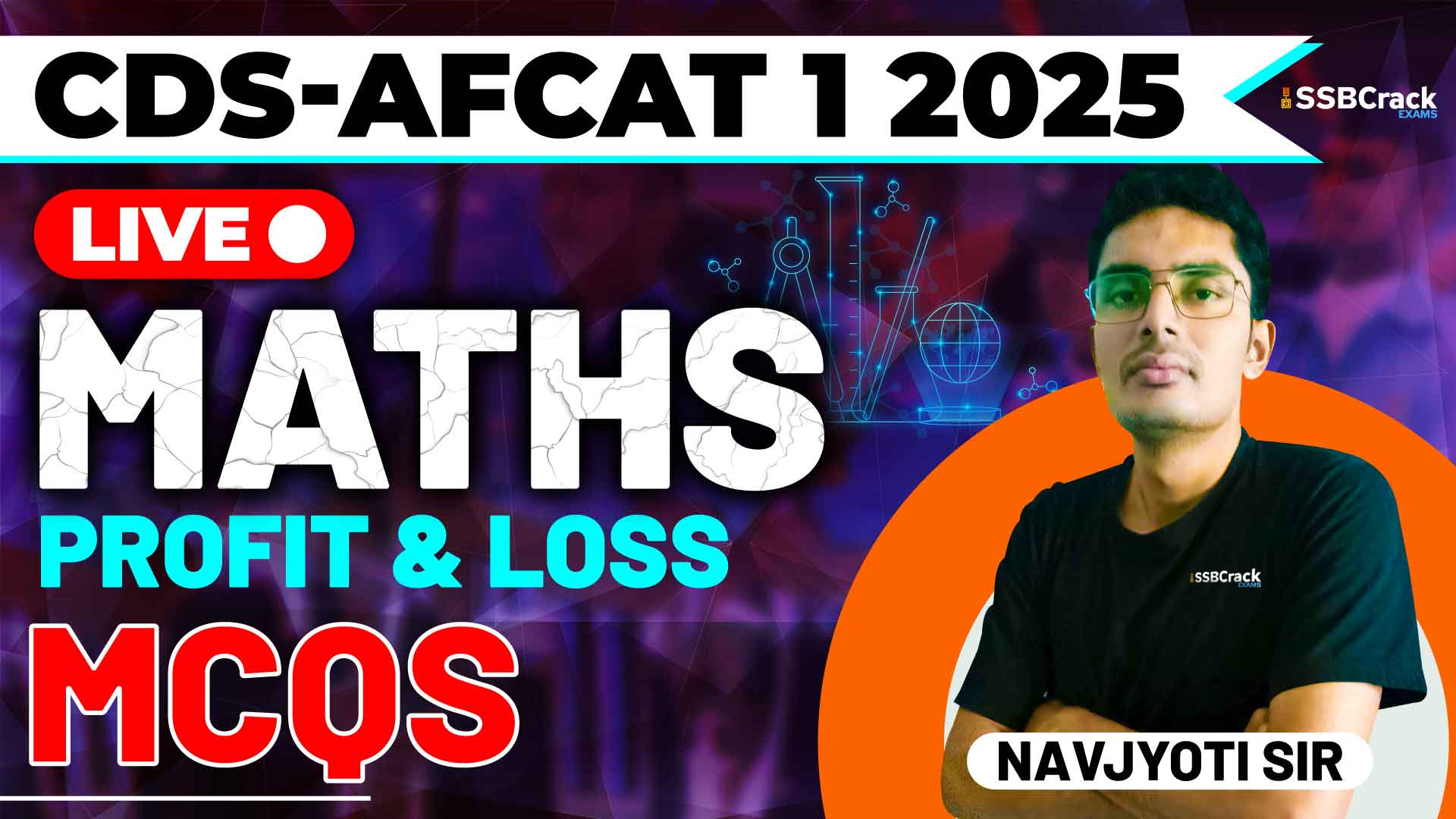Preparing for the Combined Defence Services (CDS) Examination requires a solid grasp of key mathematical topics. Among these, the concept of profit and loss holds significant importance due to its frequent appearance in the exam. A recent class focused on this topic offered aspirants an opportunity to practice extensively and refine their problem-solving skills. Here’s a detailed overview of the class and essential strategies to excel in this topic for the CDS exam.
The Importance of Practicing MCQs
The class revolved around solving multiple-choice questions (MCQs) as a practical approach to mastering profit and loss. Here’s why practicing MCQs is crucial:
1. Reinforces Concepts
- MCQs allow you to apply theoretical knowledge to a variety of scenarios, helping to solidify your understanding of profit and loss.
- Regular practice ensures that concepts like cost price, selling price, and discount calculations become second nature.
2. Enhances Speed and Accuracy
- Solving MCQs under timed conditions helps improve calculation speed, which is critical given the time constraints of the CDS exam.
- Familiarity with common question patterns reduces the likelihood of errors and boosts confidence during the exam.
3. Identifies Weak Areas
- Regular practice helps pinpoint topics that require more focus. For instance, if you consistently struggle with questions involving successive discounts or markups, you can prioritize these areas in your revision.
4. Simulates Exam Conditions
- Practicing MCQs under exam-like conditions builds mental stamina and helps reduce anxiety on the actual test day.
- Familiarity with the question format ensures you are well-prepared to handle similar challenges in the exam.
5. Sharpens Decision-Making Skills
- MCQs often include distractors to test your precision and attention to detail. Regular practice hones your ability to eliminate incorrect options efficiently.
Essential Preparation Strategies
To excel in the topic of profit and loss, a structured approach is essential. Here are some strategies to guide your preparation:
1. Understand the Basics
- Develop a strong understanding of fundamental concepts, such as cost price, selling price, profit percentage, and loss percentage.
- Focus on real-life applications of profit and loss to make the concepts more relatable and easier to grasp.
2. Practice Consistently
- Dedicate time daily to solving questions on profit and loss, starting with simpler problems and progressing to more complex ones.
- Use previous years’ question papers to familiarize yourself with the types of questions commonly asked in the CDS exam.
3. Improve Time Management
- Practice solving questions under timed conditions to enhance your speed and efficiency.
- Learn to identify shortcuts and quicker methods for solving questions, without compromising accuracy.
4. Review Mistakes Thoroughly
- Analyze errors in your practice sessions to understand where you went wrong. This helps you avoid repeating the same mistakes.
- Pay special attention to tricky scenarios like successive discounts, false cost prices, or combined profit and loss calculations.
5. Use Quality Study Material
- Rely on trusted books, online resources, and coaching materials for practice.
- Supplement your preparation with video tutorials or interactive quizzes to reinforce learning.
6. Simulate Exam-Like Conditions
- Attempt full-length mock tests regularly to adapt to the pressure and time constraints of the actual exam.
- Focus on maintaining accuracy to minimize negative marking, as incorrect answers are penalized in the CDS exam.
Conclusion
The recent class on profit and loss provided CDS aspirants with a focused and practical learning experience. By emphasizing the importance of MCQ practice and adopting targeted preparation strategies, you can master this essential topic. Consistent effort, smart revision, and regular practice will undoubtedly strengthen your mathematical foundation and increase your chances of success in the CDS examination. Stay determined, keep practicing, and you will be well on your way to achieving your goals.







